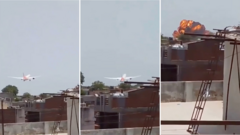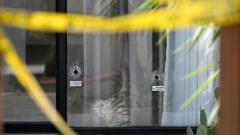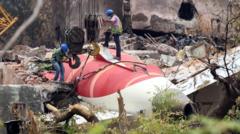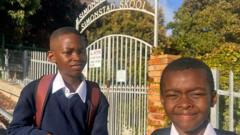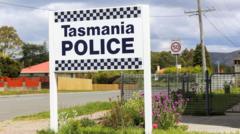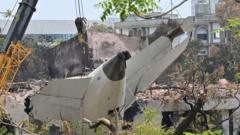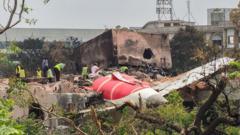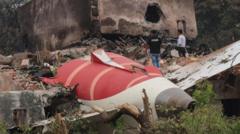In a significant move, South African President Cyril Ramaphosa has announced a judicial inquiry to probe allegations regarding political meddling in the prosecution of apartheid-related crimes. This development surfaces thirty years post-apartheid, following a lawsuit from victims’ families concerning inadequate justice measures.
**South Africa Launches Inquiry into Apartheid-Era Prosecution Delays**
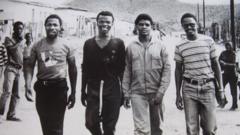
**South Africa Launches Inquiry into Apartheid-Era Prosecution Delays**
Judicial investigation aims to address alleged political interference in justice for past atrocities.
The inquiry stems from ongoing legal actions pursued by twenty-five families and survivors, demanding accountability for crimes that have remained unaddressed since the dismantling of the apartheid regime. The Truth and Reconciliation Commission (TRC) had previously highlighted numerous instances of murder and torture during the apartheid era, yet most cases failed to reach judicial proceedings.
President Ramaphosa's statement expressed a commitment "to establish the true facts" surrounding these allegations and bring closure to affected parties. Central to the lawsuit is the case of Fort Calata, whose murder in 1985 contributed to widespread public outrage. Despite confessions made by implicated police officers to the TRC, no criminal charges have ever been filed.
Skepticism remains among critics regarding the motivations of the African National Congress (ANC) leadership; allegations hint at a covert arrangement with the former apartheid government designed to shield officials from prosecution. The ANC has categorically rejected these claims.
The presidency's recent acknowledgment of ongoing concerns about the obstructions in prosecuting apartheid-era crimes suggests a collective recognition of the issues stemming from previous administrations. Details regarding the inquiry's leadership and timeline will be made public shortly.
This inquiry represents a critical juncture for South Africa as it continues to grapple with its apartheid history and the quest for justice.
President Ramaphosa's statement expressed a commitment "to establish the true facts" surrounding these allegations and bring closure to affected parties. Central to the lawsuit is the case of Fort Calata, whose murder in 1985 contributed to widespread public outrage. Despite confessions made by implicated police officers to the TRC, no criminal charges have ever been filed.
Skepticism remains among critics regarding the motivations of the African National Congress (ANC) leadership; allegations hint at a covert arrangement with the former apartheid government designed to shield officials from prosecution. The ANC has categorically rejected these claims.
The presidency's recent acknowledgment of ongoing concerns about the obstructions in prosecuting apartheid-era crimes suggests a collective recognition of the issues stemming from previous administrations. Details regarding the inquiry's leadership and timeline will be made public shortly.
This inquiry represents a critical juncture for South Africa as it continues to grapple with its apartheid history and the quest for justice.



